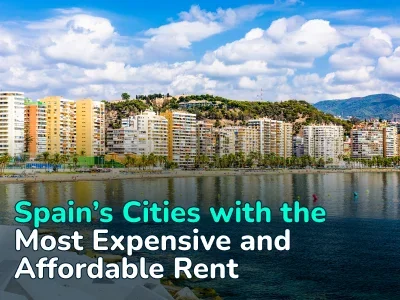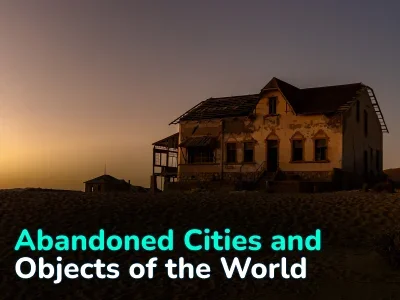
Five real estate niches that will become profitable after the pandemic
The coronavirus pandemic, lockdown measures aimed at stopping it and intensifying global economic recession against this backdrop have upset the plans of millions.
Further developments are poorly predicted though one thing is clear: the economic consequences for both individuals and hundreds of thousands of businesses around the world will be complicated. How will the whole situation affect the real estate market? Most likely, the course for joint consumption and reasonable economy, which society has been following for about 10 last years, will manifest itself even more clearly.
The commercial sector of the real estate market is expected to decline — premises for HoReCa, shops, beauty salons and entertainment complexes are losing relevance, services not of prime necessity are not in demand for obvious reasons. Warehouses and industrial premises will remain in demand — many companies have switched to online operations offering delivery, return, and fitting services.
Consumer Compatibility
The concept of collective use created the grounds for development strategies of many successful companies in recent years, including Uber, Airbnb and Kickstarter. In the real estate sector, this model has shown itself to be growing in demand for real estate with a function — for example, co-residence houses (Coliving) and shared offices (Coworking) have gained popularity. This format is attractive not only for reduced rents, but also for additional services — so-called real estate functions. Services are supposed to be very diverse — from domestic services to medical care.
Functional real estate is a fresh trend, which has just started gaining popularity on a large scale. The march around the world began, like many others, in the US. The global market is only getting acquainted with the capabilities and advantages of such format of housing and commercial properties. Therefore, the trend of real estate with a function will grow, especially in the light of recent developments with coronavirus and economic shocks for citizens and business sector.
What real estate niches will be the most profitable and popular in the coming years?

1. Housing with healthcare services
One example of real estate with healthcare services is nursing homes, which were very popular in the US before the crisis. The popularity of the housing format will not decline even after the crisis. New subtypes of such property may be emerged: for example, housing near hospitals, in which quarantined people, those who were recently discharged from the hospital, as well as their relatives, etc. will temporarily live.
Such buildings, of course, will require large investments into staff, equipment and services. At the same time, residents agree to pay for additional medical services that they cannot get when renting typical houses and apartments, for example, more frequent / specific cleaning and round-the-clock medical supervision.
2. Coworking
Coworking has been popular for more than a year and will continue to be profitable after lockdown is lifted. There are two target audiences for this real estate format:
- Remote workers. The transition to remote work is a global trend of recent years. Number of self-employed is growing; companies are introducing free office attendance, etc. Lockdown will reinforce this trend.
- Startups affected by the crisis and start-up businesses for which to rent individual offices seems unbearable.
The demand for coworking is great, but you should be cautious investing into this format, not repeating the mistakes of the largest WeWork coworking network.
3. Coliving
Coliving is not a new solution in the real estate market. As a rule, these are old «reshaped» for living together houses. Often the living standards prescribed by the city authorities for this type of housing are not met there — houses are mainly redesigned in order to accommodate as many people as possible, instead of providing maximum comfort to residents.
Coliving is likely to continue to be in demand due to the global economic decline. However, this housing format is being improved:
- houses will be built in accordance with the standards, which will reduce risks and increase the interest of investors and owners;
- housing of this format will become more comfortable, which will have a beneficial impact on the rotation of residents in coliving.
4. Housing with a complete self-isolation
The opposite of the previous trend — housing with the possibility of absolute isolation, most likely, will also go uphill against the backdrop of lockdown and mass panic. People do worry about their lives and lives of their loved ones. This cannot but affect the choice of housing, especially among wealthy people who want to settle in megalopolises with all the benefits and advanced urban infrastructure, but at the same time have the opportunity to go for self-isolation if required.
Self-isolated apartments will become especially popular in the luxury real estate segment. The housing format will be in demand only in large densely populated megacities. Target market — people who are forced / willing to live and work in the city, but who do not consider the private sector as accommodation.
Personal elevators and the placement of garages directly in the apartments will be offered as additional amenities. This solution has already been proposed at the Porsche Design Tower in Miami. The format can become the widespread standard of luxury housing in many cities.
5. Buildings with mixed function
These can be buildings both with coworking and coliving — two in one. As an improved alternative — «capsule» properties with housing, entertainment, service infrastructure, coworking and so on, in which one may stay for several days, because there is everything for living.
The target market of such «capsule» complexes is relocated employees, staff with flexible office hours and business travelers.
The concept is partially implemented in a public compounds for work, events and entertainment. Though, rental housing is expensive there. This could be a more affordable alternative to MFC. For investors, mixed projects will cost more, and income will be worth the hassle, because the profit from renting such real estate out can exceed the profitability of all other housing formats.
Based on materials: RBC
Photo: Envato





















